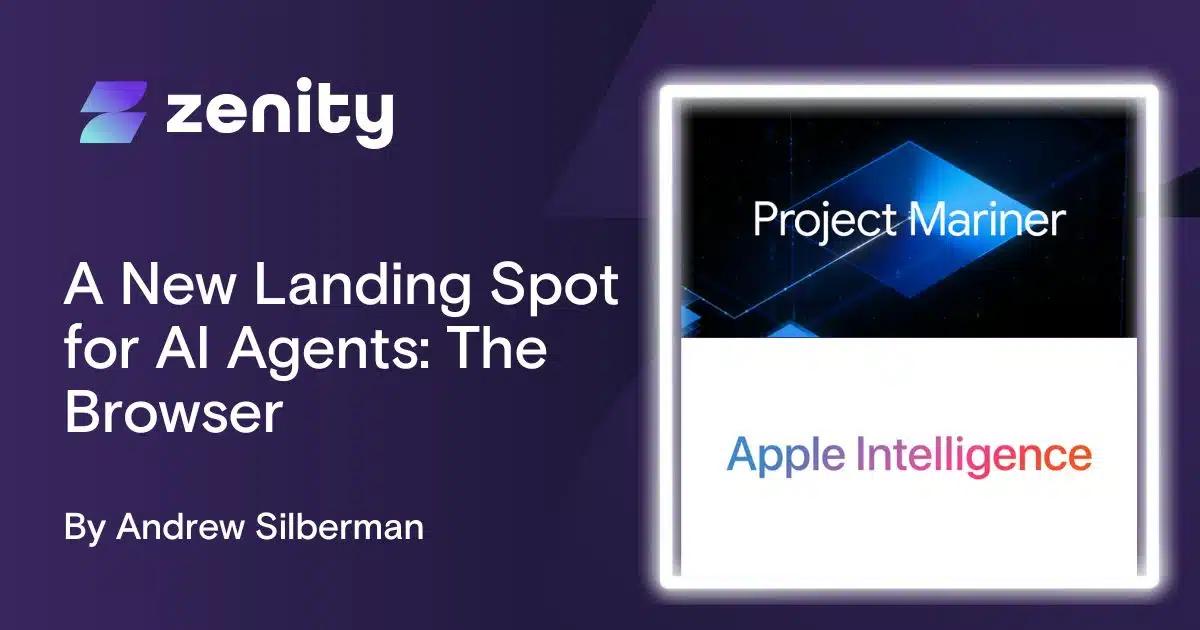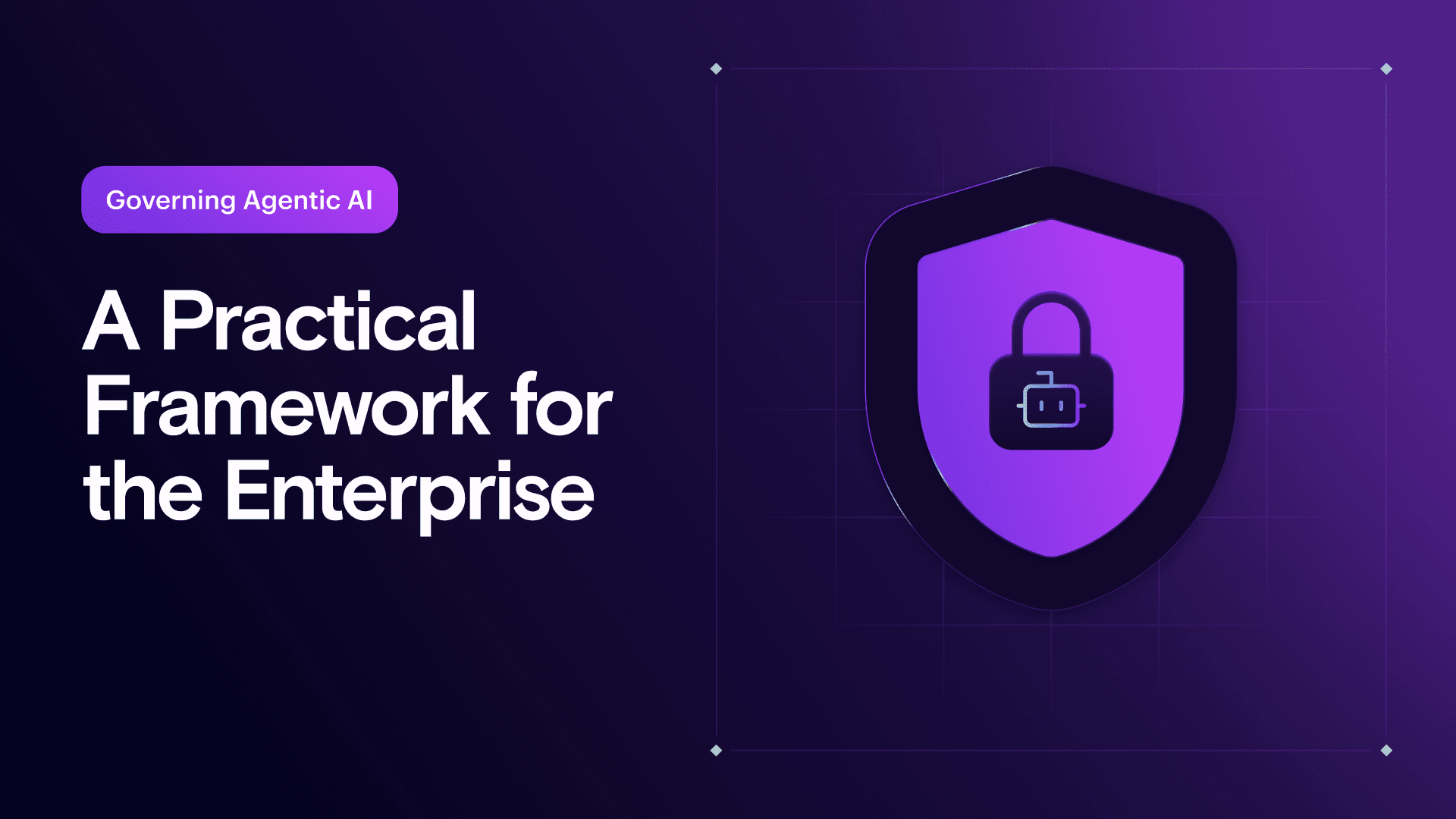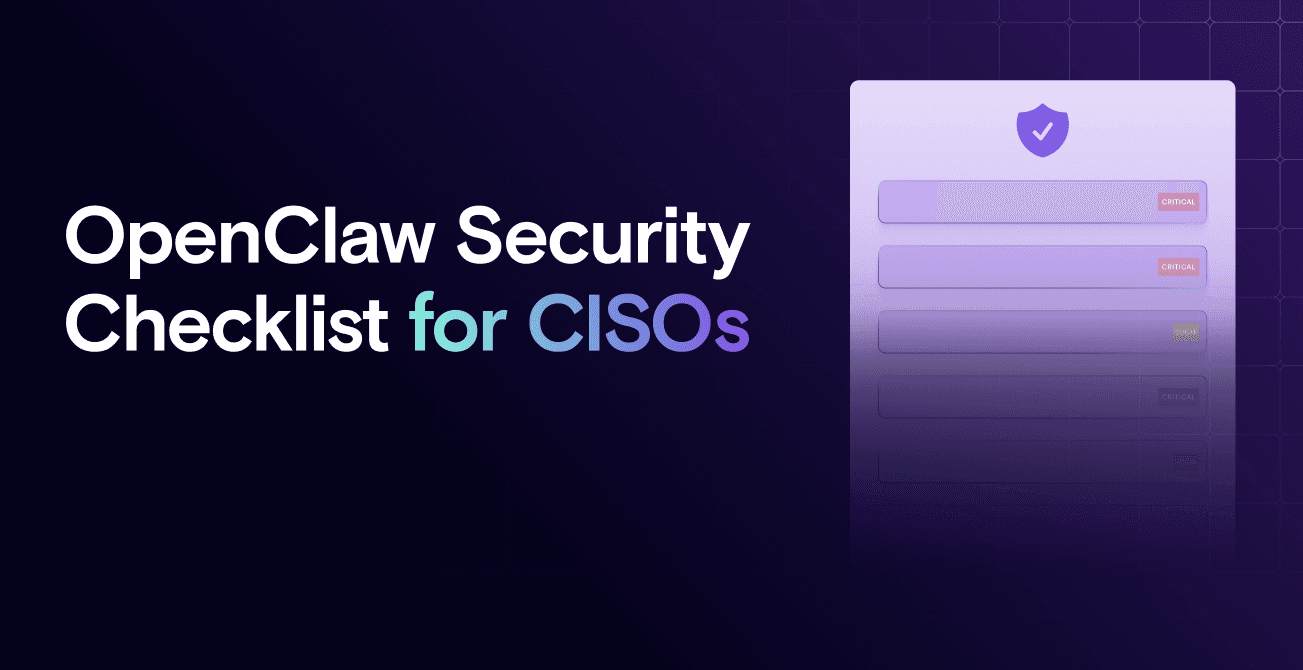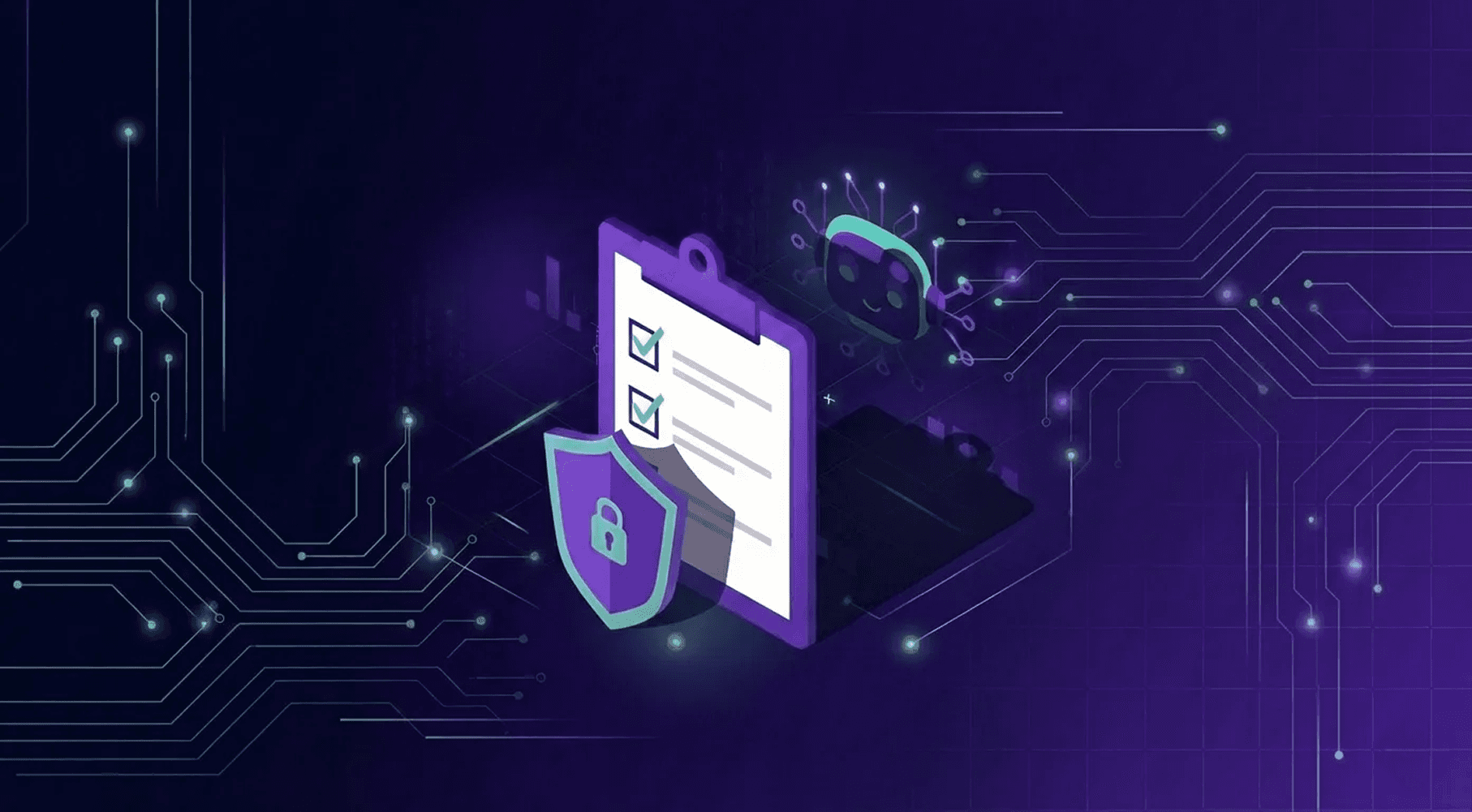A New Landing Spot for AI Agents: The Browser

Last week, Google launched Project Mariner, an AI Agent built for the browser, based on the updated Gemini 2.0. Project Mariner is built on top of Google Gemini and can be used to browse the web on your behalf, taking commands from within a Chrome extension and performing autonomous tasks on your behalf.
This marks a significant leap forward in the realm of Agentic AI, both for Google and for the market as a whole. This innovative project is designed to perform intricate tasks autonomously directly inside the browser, setting a new standard for AI Agents and their capabilities. In this blog, we’ll explore why Mariner is a game-changer for AI Agents and business productivity, and the essential guardrails needed to ensure its safe and ethical use.
The Evolution of AI Agents
AI Agents have come a long way from their initial iterations of automations, which then became copilots, aimed at primarily handling multimodal data such as text, images, and more as almost an advanced search engine / enterprise assistant. AI Agents 1.0 added autonomous actions to copilots that could react based on a variety of triggers in business productivity apps. Google’s Mariner project, however, takes this a step further by enabling AI agents to perform complex tasks autonomously directly on the browser; where most people truly live their digital and work lives.
This shift is crucial as it allows AI Agents to not only understand and process information but also to take meaningful actions based on that understanding. Further, it meets business users where they are so they can be easily adopted without needing to learn a new workflow for adoption. Howeve, there are real concerns about what happens when these Agents are given access to act based on corporate and/or sensitive data. With recent research indicating that 42% of enterprises need access to eight or more data sources to deploy AI agents successfully, there is a real uncertainty from security and governance leaders how data gets processed and used by AI Agents under the hood.
Why Mariner Matters
The ability of Mariner to perform intricate tasks autonomously in the browser is a significant advancement for several reasons:
- Enhanced Efficiency: By automating complex tasks, Mariner can (natively) significantly reduce the time and effort required for routine activities. For instance, it can navigate websites, fill out forms, and even perform data analysis without human intervention. This level of automation frees up valuable time for users to focus on more strategic, fulfilling, and creative tasks.
- Improved Accuracy: AI Agents like Mariner can process and analyze data from a variety of data sources instantly, with a high degree of accuracy, minimizing the risk of human error. This is particularly beneficial in fields such as finance, healthcare, and legal services, where precision is paramount.
- Scalability: Mariner’s autonomous capabilities make it highly scalable. It can handle multiple tasks simultaneously, making it an ideal solution for businesses looking to streamline operations and improve productivity.
The Importance of Guardrails
While the advancements brought by Mariner are impressive, they also come with inherent risks. Ensuring that AI Agents operate within corporate boundaries is crucial to prevent misuse and protect sensitive information. Much like self-driving cars, there is going to be some initial shock and resistance, but people will likely see the beneits and advantages of using AI Agents in the workplace as too appealing to stay away.
However, beyond the obvious upsides, there needs to be guardrails in place, particularly when agents are deployed in the enterprise and corporate data is involved, to ensure that security teams can not only do their best to prevent attacks, but also to detect and respond to AI Agents behaving anomalously or insecurely.
Google’s blog, where they announce Project Mariner has section on security, stating, “With Project Mariner, we’re working to ensure the model learns to prioritize user instructions over 3rd party attempts at prompt injection, so it can identify potentially malicious instructions from external sources and prevent misuse. This prevents users from being exposed to fraud and phishing attempts through things like malicious instructions hidden in emails, documents or websites.”
However, security teams must know that there is no free lunch here, and that much like in the cloud, Google is responsible for the infrastructure and reliability of Mariner, but enterprises own their data, how it’s accessed, and setting up their own guardrails to enforce proper use and adoption.
Preventing Jailbreak Attempts
One of the primary concerns with AI agents is the potential for users to attempt to jailbreak them, bypassing built-in restrictions to perform unauthorized actions. This could include accessing or sharing sensitive data, which poses significant security and privacy risks. To mitigate this, robust security measures must be in place, including:
- Strict Access Controls: Limiting access to sensitive functions and data to authorized users only.
- Continuous Monitoring: Implementing real-time monitoring to detect and respond to suspicious activities promptly.
- Regular Audits: Conducting regular security audits to identify and address potential vulnerabilities.
Critically, understanding the motivations and behaviors of each AI Agent is critical, and simply studying prompts and responses is not enough. Many Agents have intricate connections, flows, and agentic capabilities that link it to various knowledge (data) sources and actions to apps.
Ensuring Ethical Behavior
Another critical aspect of deploying AI agents like Mariner is ensuring that they behave ethically and as intended. This involves:
- Transparency: Providing clear visibility into the AI agent’s decision-making processes and actions. Users should be able to understand how and why the AI agent is performing certain tasks.
- Accountability: Establishing accountability mechanisms to ensure that any misuse or unintended actions by the AI agent can be traced and addressed.
- User Education: Educating users on the ethical use of AI agents and the importance of adhering to established guidelines and policies.
Conclusion
Google’s Mariner project represents a significant milestone in the evolution of AI agents. By enabling these agents to perform intricate tasks autonomously, Mariner enhances efficiency, accuracy, and scalability, offering substantial benefits to users and businesses alike. However, with these advancements come new challenges, particularly in ensuring the ethical and secure use of AI agents.Implementing robust guardrails is essential to prevent misuse and protect sensitive information. By focusing on security, transparency, and accountability, we can harness the full potential of AI agents like Mariner while mitigating the associated risks. As we continue to explore the possibilities of Agentic AI, it is crucial to prioritize responsible development and deployment to ensure a safe and beneficial future for all. We recently ran a webinar on how to secure AI Agents from buildtime to runtime that explores the various attack vectors and how you can manage the risks. Check it out here.
All ArticlesRelated blog posts

Governing Agentic AI: A Practical Framework for the Enterprise
In my previous piece, "The Agentic AI Governance Blind Spot," I laid out what I believe is one of the most critical...

OpenClaw Security Checklist for CISOs: Securing the New Agent Attack Surface
OpenClaw exposes a fundamental misalignment between how traditional enterprise security is designed and how AI...

The Agentic AI Governance Blind Spot: Why the Leading Frameworks Are Already Outdated
Approach any security, technology and business leader and they will stress the importance of governance to you....
Secure Your Agents
We’d love to chat with you about how your team can secure and govern AI Agents everywhere.
Get a Demo